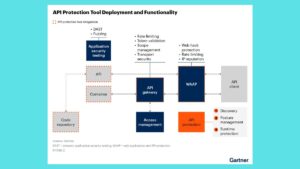HRTech Market Development: Shaping the Future of Human Resources

The Human Resources Technology (HRTech) market has undergone significant transformations in recent years, driven by technological advancements, changing workforce dynamics, and evolving business needs. As organizations increasingly recognize the importance of effective talent management, employee engagement, and data-driven decision-making, the HRTech market is poised for continued growth and innovation. In this blog, we will explore the current state of the HRTech market, key trends shaping its development, and what the future holds for this dynamic sector.
Current State of the HRTech Market
The HRTech market encompasses a wide range of software solutions and platforms designed to streamline and enhance HR processes, including recruitment, performance management, employee engagement, learning and development, and payroll management. The global HRTech market has witnessed substantial growth, with investments reaching over $15 billion in recent years.
Key players in the HRTech space include established giants like SAP SuccessFactors, Oracle HCM Cloud, and Workday, as well as innovative startups like BambooHR, Gusto, and Lever. These companies are continually enhancing their offerings to meet the diverse needs of organizations, from small businesses to large enterprises.
Key Trends Shaping HRTech Market Development
1. AI and Automation
Artificial Intelligence (AI) and automation are transforming HR processes, enabling organizations to streamline operations and improve decision-making. Key applications include:
- AI-Powered Recruitment: AI-driven tools can analyze resumes, screen candidates, and predict job fit, reducing the time and effort spent on the recruitment process.
- Chatbots for Employee Engagement: Many organizations are leveraging chatbots to provide instant support for employee inquiries, onboarding, and training, enhancing the overall employee experience.
2. Remote Work and Flexible Solutions
The COVID-19 pandemic accelerated the shift toward remote work, prompting HRTech companies to develop solutions that support flexible work arrangements. Key developments include:
- Virtual Onboarding Tools: As companies embrace remote hiring, tools that facilitate virtual onboarding and training have become essential, helping new employees integrate smoothly into the organization.
- Collaboration and Communication Platforms: Solutions like Slack, Microsoft Teams, and Zoom have gained popularity as companies seek to maintain team cohesion and communication in a remote work environment.
3. Data-Driven Decision Making
Data analytics has become a critical component of HR strategies, enabling organizations to make informed decisions about talent management and workforce planning. Key trends include:
- People Analytics: Organizations are increasingly utilizing people analytics to track employee performance, engagement, and retention, allowing HR teams to identify trends and areas for improvement.
- Predictive Analytics: By leveraging historical data, organizations can forecast future workforce needs, identify potential turnover risks, and develop targeted retention strategies.
4. Employee Experience and Engagement
The focus on employee experience and engagement has intensified, with organizations recognizing the link between employee satisfaction and business success. Key initiatives include:
- Continuous Feedback Systems: Companies are moving away from traditional annual performance reviews in favor of continuous feedback systems that promote ongoing conversations between employees and managers.
- Employee Well-being Programs: Many organizations are investing in employee well-being initiatives, offering mental health resources, flexible working hours, and wellness programs to support a healthier work-life balance.
5. Diversity, Equity, and Inclusion (DEI)
Organizations are increasingly prioritizing diversity, equity, and inclusion in their HR strategies, with technology playing a crucial role in driving these initiatives. Key developments include:
- DEI Analytics: HRTech solutions are incorporating DEI metrics to help organizations track progress and identify areas for improvement in their diversity initiatives.
- Bias Detection Tools: AI-driven tools can analyze job descriptions and recruitment processes to identify and mitigate biases, promoting more equitable hiring practices.
Future Outlook for HRTech Market Development
The future of the HRTech market looks promising, with several key developments expected to shape its trajectory:
1. Integration of Advanced Technologies
As technology continues to evolve, HRTech solutions will increasingly incorporate advanced technologies like machine learning, blockchain, and virtual reality (VR). These innovations will enhance various HR functions, from recruitment to employee training.
2. Customization and Personalization
Organizations will demand more customized HRTech solutions tailored to their specific needs. Vendors will need to focus on offering flexible platforms that allow for easy integration and customization to enhance user experience.
3. Focus on Employee Experience
As employee experience becomes a top priority, HRTech solutions will evolve to provide more personalized experiences, enabling employees to access resources and support that cater to their unique needs and preferences.
4. Increased Investment and Competition
The HRTech market is expected to see continued investment from venture capital firms, leading to increased competition among vendors. This competition will drive innovation and lead to the development of more advanced and user-friendly solutions.
5. Globalization of HRTech
As companies expand their operations globally, the demand for HRTech solutions that support multi-country payroll, compliance, and talent management will increase. Vendors will need to adapt their offerings to meet the needs of a diverse and geographically dispersed workforce.
Conclusion
The HRTech market is experiencing significant development, driven by technological advancements, changing workforce dynamics, and evolving business needs. As organizations prioritize effective talent management, employee engagement, and data-driven decision-making, HRTech solutions will continue to play a critical role in shaping the future of human resources.
By embracing the latest trends and innovations in the HRTech space, organizations can optimize their HR processes, enhance employee experiences, and drive business success in an increasingly competitive landscape. The future of HRTech is bright, and those who adapt to these changes will thrive in this dynamic environment.






